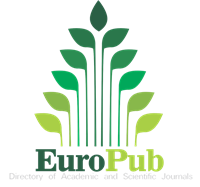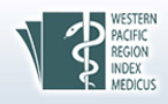Those involved in publishing behavior, including authors,editors, peer review experts, and publishers, should adheres to the philosophy of publishing ethics .The following are statements of ethical and academic misconduct in publishing for reference.For details of academic misconduct, please refer to "Academic publishing specification:Definition of academic misconduct for journals CY/T 174-2019", the press and publication industry standard of the People's Republic of China issued by the National Press and Publication Administration.
Ⅰ.Editorial duties
1.Editorial staff should strictly abide by and implement relevant national laws and regulations and academic publishing ethics, as well as comply with the legal requirements on libel, copyright infringement and plagiarism.
2.All manuscripts will be treated equally and fairly. The manuscript will be accepted/rejected only on the basis of originality, importance, clarity, and compatibility with the purpose and scope of the journal, without regard to the author's race, gender, sexual orientation, religious belief, ethnicity, national origin, or political views. Respect the author's research results and expert review opinions.
3.Editorial staff should abide by the principle of confidentiality and should not disclose any information about the submitted paper to others except to provide necessary information for corresponding authors, review experts and members of the editorial board as appropriate.Do not disclose the relevant information of the author and expert reviewer.Do not share content of the manuscript with others outside of editing procedures. Those who fail to safely store manuscripts or destroy manuscripts and electronic manuscripts in accordance with regulations and thus cause information leakage should be investigated for responsibility.
4.Without the express written consent of the author, the editorial staff should not use the unpublished material disclosed in the author's manuscript for the study of the editor. The contents and research results of unpublished manuscripts should not be published without authorization.
5.Editors should put forward editorial opinions in accordance with academic and ethical standards, and refused to all manuscripts that are detrimental to the business needs of academic ethics and the exchange of interests. It is not allowed to deliberately select experts who have interest relations with the contributing authors to review the paper, and it is not allowed to conceal the interest relations with the contributing authors. Once there is interest conflict or cooperation relationship with the relevant authors, the editor or review expert must be replaced, and the chief editor or other members of the editorial board should be responsible for the review of the paper.
6.Editors should not interfere with the review, or influence the review opinions, or deny or distort the opinions of reviewers without any reason. They should feed back the review opinions of experts in time and coordinate academic discussions.
7.Do not intentionally distort the author's intention to modify the content of the manuscript; The editor should communicate with the author in time and obtain the consent of the author when there is a major revision of the article. Respect the opinions of the authors, encourage academic controversy, and have the obligation to reply and convey the authors' different views on the reviewers' opinions.
8.Editors should be responsible for all the editorial aspects of the journal, and ensure that high-quality journals with novel content and authentic data are published on time, and that front and hot issues are given priority to be published.
9. All the submitted manuscripts shall be tested by the collaborative journal editing system for academic misconduct. In case of suspicion of plagiarism and/or ethical violations, editors have an obligation to investigate and communicate with relevant legal bodies about the details of the academic misconduct. In such cases, the manuscript under review may be immediately rejected, the published article may be retracted, corrected or clarified accompanied by apology. The editors are obliged to hold authors and reviewer accountable for misconduct.
10.When there is an important topic, the editors should declare according to the regulations. No article may be published without the permission of the author. It is not allowed to add self-cited literatures of journals that have nothing to do with the content of the published papers, or require or imply that the authors cite specific literatures unnecessarily.For manuscripts that need to provide relevant materials for ethical review, the relevant requirements and procedures should not be ignored.
Ⅱ.Peer review experts' duties
1.Review experts should use their own professional knowledge and ability to review the creativity, scientificity and practicality of manuscripts. Review experts should make fair and honest evaluation on the appropriateness of the research methods, the rationality of the scientific research design, the accuracy of the results and conclusions, and the existence of leaks, avoiding ambiguous comments, so as to help the editors to judge the choice of manuscripts. Propose detailed revision suggestions to the problems existing in the paper, in order to help the author improve the quality of the paper.
2.If the review experts thinks that he or she is not capable of reviewing the relevant research in the manuscript, or knows that the review cannot be completed within the specified time, he or she should immediately inform the chief editor or editor to make adjustments so that other reviewers can be replaced in time.
3.The reviewed manuscripts shall be kept strictly confidential and shall not be shared with others or discussed with others in detail unless authorized by the chief editor. The data, opinions and conclusions of the reviewed manuscripts are not allowed to be used and published. If used, the permission of the author must be obtained.
4.The contents of unpublished manuscripts reviewed by oneself are not allowed to be embezzled; Do not make use of the confidential information and the rights of the review for their own benefit.
5.The review and evaluation should respect different academic points of view, adhere to the principle of objectivity, and only evaluate the reviewed manuscripts on the academic level, without making personal comments or personal attacks; The selection of manuscripts is not affected by the race, gender, religion, belief, status, qualifications and authority of the contributors. Review experts should clearly state their views with sufficient evidence. If the manuscript is found to have suspicious duplicate publication, fraud, plagiarism or other academic misconduct, it should be truthfully reported to the editorial department.
6.Review experts should identify cited literatures of that are not noted by the authors, and any statement of observations, derivations, or arguments should be accompanied by relevant citations. Review experts should alert the editor when they find significant similarities or overlaps between the manuscript and any other published data known to them.
7.Privileged information or ideas obtained through peer review must be kept confidential and not used for personal gain. Review experts are not allowed to review articles that have conflicts of interest due to competition and cooperation with article authors, units and enterprises. The interest relationship with the author of the reviewed paper shall not be concealed.
Ⅲ.Author's academic misconduct
1.Plagiarism: Including ideas, data, pictures, research methods, text statement, whole and unpublished articles of others. The first five are used without attribution in the article and published under one's own name.Plagiarism as a whole refers to the body of a paper or the body of a part of a paper overquoting or quoting in large quantities from the published literature of others. Plagiarism in an unpublished paper of others refers to the unauthorized use of others' unpublished ideas, original research (experimental) methods, data, pictures, etc., or without permission but without explanation. This publication will not allow any plagiarism.
2. Forgery and tampering: Authors should ensure the authenticity and effectiveness of the data they submit and publish. Forging false data or tampering with others' research data and content is strictly prohibited.
3. Originality: Authors should ensure that their works are completely original, but can reasonably and appropriately cite other people's literature. Published data should not be resubmitted as primary sources, except when expressly notified and appropriately cited by the author.
4.Multiple submissions: The author has the obligation to ensure that the paper has never been published. It is not allowed to submit the same paper or papers with minor differences (such as supplementary data or information) to multiple journals at the same time. In the absence of any explanation, the author (or one of the authors) is not allowed to resubmit a paper that has already been published, intact or slightly modified.
5. Republication: The author has to add citation or explanation,if use the content of his own (or as one of the authors) published literature in the paper;It is not allowed to extract part of the contents of several published articles by oneself (or as one of the authors) without any explanation and put them together into a new paper for publish again.
6. Author’s signature: Author’s signature shall be limited to persons who have made substantial contributions to the research covered by the paper. Persons who have not made substantial contributions shall not be credited as authors. Authors must obtain the authorization and consent of the co-authors before submission. The publication of the paper should be guaranteed with the authorization of all authors, and the order of authors should not be disputed. Any other person or organization involved in some substantive aspect of the research project should be clearly identified in the Acknowledgements section.
7. Others: References that have not been actually referenced should not be included in the references. The copyright documents of another person may not be used without indicate source or incomplete citation. Citations from other sources should not be marked as direct citations. Funds and projects, support or assistance for publication shall be indicated on the manuscript. The key information of the paper shall not be disclosed to others or the society, which infringes the right of first issue of the contributing journal. Not to use copyright documents requiring permission without permission. It is not allowed to interfere with journal editors and review experts during the review procedure. It is not allowed to recommend peer reviewers who have interests with themselves to editors. It is not allowed to entrust a third party organization or others who have nothing to do with the content of the paper to write, submit or repair it on behalf of others. It is forbidden to publish papers in violation of confidentiality provisions.
Ⅳ.Ethical statements
For biomedical research involving humans, the author should state whether the experimental procedures used have been reviewed and approved by an ethical review committee. For approved studies, the approval number must be indicated in the paper. If the institution does not have a formal ethics committee, the author should indicate whether the trial procedures used are in accordance with national ethical standards for biomedical research involving humans or the latest revision of the Helsinki Declaration of the World Medical Association. If there is doubt whether the research was conducted in accordance with ethical standards, the author must explain the justification for his methodology and demonstrate that the institutional review body explicitly approved the questionable aspects of the research. In addition, according to the informed consent principle, the study also needs to obtain the informed consent of the study participant or the child's guardian.















